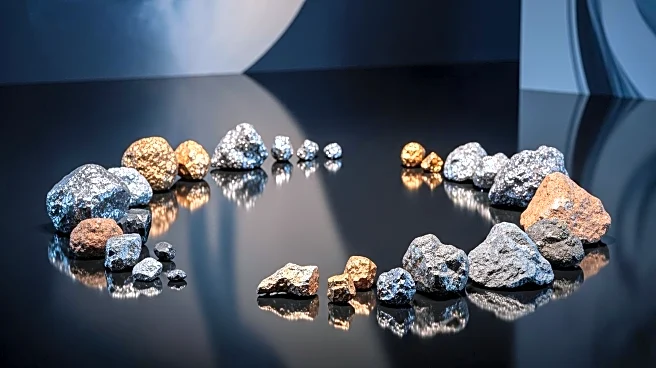What's Happening?
The Metals Company (TMC) is navigating a complex landscape as it aims to pioneer deep-sea mining for polymetallic nodules. Despite a 400% stock surge in 2025, TMC remains pre-revenue, reporting a Q2 net loss of $74.3 million. The company holds rights to a significant resource in the Pacific CCZ, with an estimated $23.6 billion NPV. Analysts are divided, with a consensus 'Hold' rating and price targets ranging from $3.75 to $11.00. TMC has secured funding from Korea Zinc and Allseas, providing a runway into 2027. Regulatory uncertainty looms, with the UN's International Seabed Authority delaying global mining rules, while environmental opposition remains strong.
Why It's Important?
TMC's venture into deep-sea mining represents a potential shift in how critical minerals are sourced, with implications for the EV and renewable energy sectors. The company's ability to secure permits and overcome environmental concerns will be crucial for its success. The geopolitical landscape, including U.S. support for critical mineral independence, could play a significant role in TMC's future. The company's strategic partnerships and funding provide a foundation for development, but regulatory and environmental challenges pose significant risks.
What's Next?
TMC aims to start commercial production by Q4 2027, contingent on securing necessary permits. The company's path forward will depend on regulatory decisions from the ISA and U.S. authorities. TMC's ability to demonstrate environmental responsibility and secure offtake agreements will be critical for its commercialization efforts. The company's financial health and ability to manage cash burn will also be key factors in its future trajectory.
Beyond the Headlines
The ethical and environmental implications of deep-sea mining are significant, with potential impacts on marine ecosystems and biodiversity. TMC's approach to addressing these concerns will be crucial for gaining public and regulatory support. The company's business model, focusing on sustainable sourcing of critical minerals, aligns with broader industry trends towards ESG considerations.










